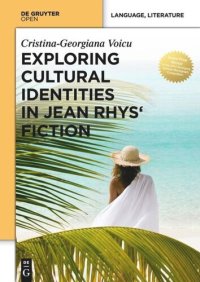
Ebook: Exploring Cultural Identities in Jean Rhys’ Fiction
Author: Cristina-Georgiana Voicu
- Year: 2014
- Publisher: De Gruyter Open Poland
- Language: English
- pdf
OPEN ACCESS
Using a theoretical approach and a critical summary, combining the perspectives in the postcolonial theory, psychoanalysis and narratology with the tools of hermeneutics and deconstruction, this book argues that Jean Rhys’s work can be subsumed under a poetics of cultural identity and hybridity. It also demonstrates the validity of the concept of hybridization as the expression of identity formation; the cultural boundaries variability; the opposition self-otherness, authenticity-fiction, trans-textuality; and the relevance of an integrated approach to multiple cultural identities as an encountering and negotiation space between writer, reader and work. The complexity of ontological and epistemological representation involves an interdisciplinary approach that blends a literary interpretive approach to social, anthropological, cultural and historical perspectives. The book concludes that in the author’s fictional universe, cultural identity is represented as a general human experience that transcends the specific conditionalities of geographical contexts, history and culture. The construction of identity by Jean Rhys is represented by the dichotomy of marginal identity and the identification with a human ideal designed either by the hegemonic discourse or metropolitan culture or by the dominant ideology. The identification with a pattern of cultural authenticity, of racial, ethnic, or national purism is presented as a purely destructive cultural projection, leading to the creation of a static universe in opposition to the diversity of human feelings and aspirations. Jean Rhys’s fictional discourse lies between “the anxiety of authorship” and “the anxiety of influence” and shows the postcolonial era of uprooting and migration in which the national ownership diluted the image of a “home” ambiguous located at the boundary between a myth of origins and a myth of becoming. The relationship between the individual and socio-cultural space is thus shaped in a dual hybrid position.
Cultural Studies, Colonial and Postcolonial Literature, Caribbean Diaspora